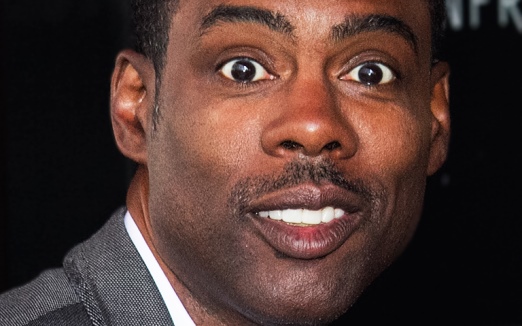
(My friend Matt Conner, recently wrote this eloquent reflection on Chris Rock’s commentary at the Oscars. Since it reflects the sort of vulnerability and lament that we believe are vital for Slow Church, I asked Matt if we could reprint it here. He graciously said yes. Be sure to keep an eye on Matt’s website, where this post was originally published… )
An Open Apology to Chris Rock
March 3, 2016
Please accept my apology for the delay on this letter. I intended to write sooner, but the best way to summarize my delay is simply to say “Trump.” I hope you’ll understand. (And yes, that was an apology before an apology.)
I am writing because I want to say I am sorry. So let me say it: I am sorry.
It wasn’t until the Oscars were nearly finished that I realized it. That’s how blind I am. I want to say “that’s how blind we are,” because a shared sense of responsibility lessens the impact that I feel. But I won’t apologize for a group, and I won’t share the blame. I can only speak for my own racist self.
The racist thoughts began in my head during your opening monologue. I was actually excited you were hosting the Oscars. You’re obviously a very funny and talented man, and given the recent drama around the whiteness of the ceremony — specifically the completely white list of acting nominees — I thought you were the perfect person to stand in the spotlight. I knew you would mention it. I knew you would get in a jab or two. What I didn’t realize is just how often I’d have to hear about it.
That was the thought, the specific thought: “having to hear about it.” It feels disgusting to write that now. When the majority of your monologue kept the focus on the lack of nominees of color (and the lack of opportunities for actors of color), those were the thoughts that crept in my head. “Okay, okay. We get it.” I figured a few jokes would be thrown in before continuing with Oscars-as-normal (whatever that means beyond a long, drawn-out process).
Then came the comedic sketches in between. Sasha Baron Cohen as Ali G. Angela Bassett’s bit. More jokes and more attention given to this one single issue.
I can’t remember exactly what I said to my wife, but I finally broke the silence. My thoughts came out of my mouth. It was something like, “Wow, they’re sure focusing on this a lot.” My underlying meaning: “I’m tired of hearing about this. It doesn’t affect me. You made your point and now I’m ready to move on.” It was toward the end of the show, when my own thoughts and emotions regarding all of this, reached that last specific point.
I wanted to dismiss you.
That’s how this works for people in my position. (There it is again, alluding to a group rather than owning it myself. Let’s start again.)
That’s how it works for me. As a white male, I can hear the complaints, the cries of someone not in a position of power and privilege and decide whether to “take up the cause” or summarily dismiss it. I can dismiss you. On Sunday night, I wanted to dismiss you. And I am not sure there’s a worse thing one person can do to another.
I am sorry.
In the moment I realized my own dismissive thoughts — thoughts that wanted you to stop talking about the issue — I realized just how overwhelming it must feel to never be able to dismiss something. You could never crack enough jokes that night to dismiss the whiteness of this year’s Academy Awards. You had the ability to say and do a lot on the stage that night in front of millions of viewers, but one thing that was beyond your control was the ability to dismiss it, to move on, to just not worry about it anymore.
I’ve got this phrase that I love: “criticize by creating.” The idea is simply that instead of complaining about something, a person should apply himself/herself and create the change they’d want to see in the world. That’s a very white notion, describing an ability for the person who can dismiss something. I have the choice to criticize something or to create. But when you cannot dismiss something, I can only assume it’s not nearly that easy.
Therein lies the problem. The opportunities aren’t there, and my dismissal to wish someone would just create their own opportunities is to continue to dismiss him/her. It keeps me at arm’s length, using language of “us” and “them.” It keeps us separate. It keeps love out of the equation.
The Oscars might seem like a silly event to write about, considering so many other issues and areas affected by race in this country. An open letter to you might also seem like an odd place to start. But since that night, I can’t stop coming back to my own racist thoughts — ones that wanted you to stop talking so the privileged order of things could continue as always, uninterrupted with concerns for anyone else. For that, I am very sorry.
Even worse, I am afraid it is only one single example. There must be others. There has to be others. I must admit I am very uncomfortable with the thought of taking more time to even consider other areas in which I am so dismissive, but I believe it’s that very tension that reveals the importance of the exercise.
I want to commit myself to that work as a white male. I want to listen to the cries of those oppressed and opposed and give them my full attention, my complete consideration. I want to see things as you see them, as others see them, in the hopes that I stop using that word — “them.” In this moment, it can begin with a straightforward apology to you and a confession to all that I recognize that I’ve used my privilege to dismiss others, including yourself, far too often for far too long.
I can only hope you’ll accept my apology. (And that if we ever meet in person, you’ll do a verse as Gusto from CB4.)
Matt
















